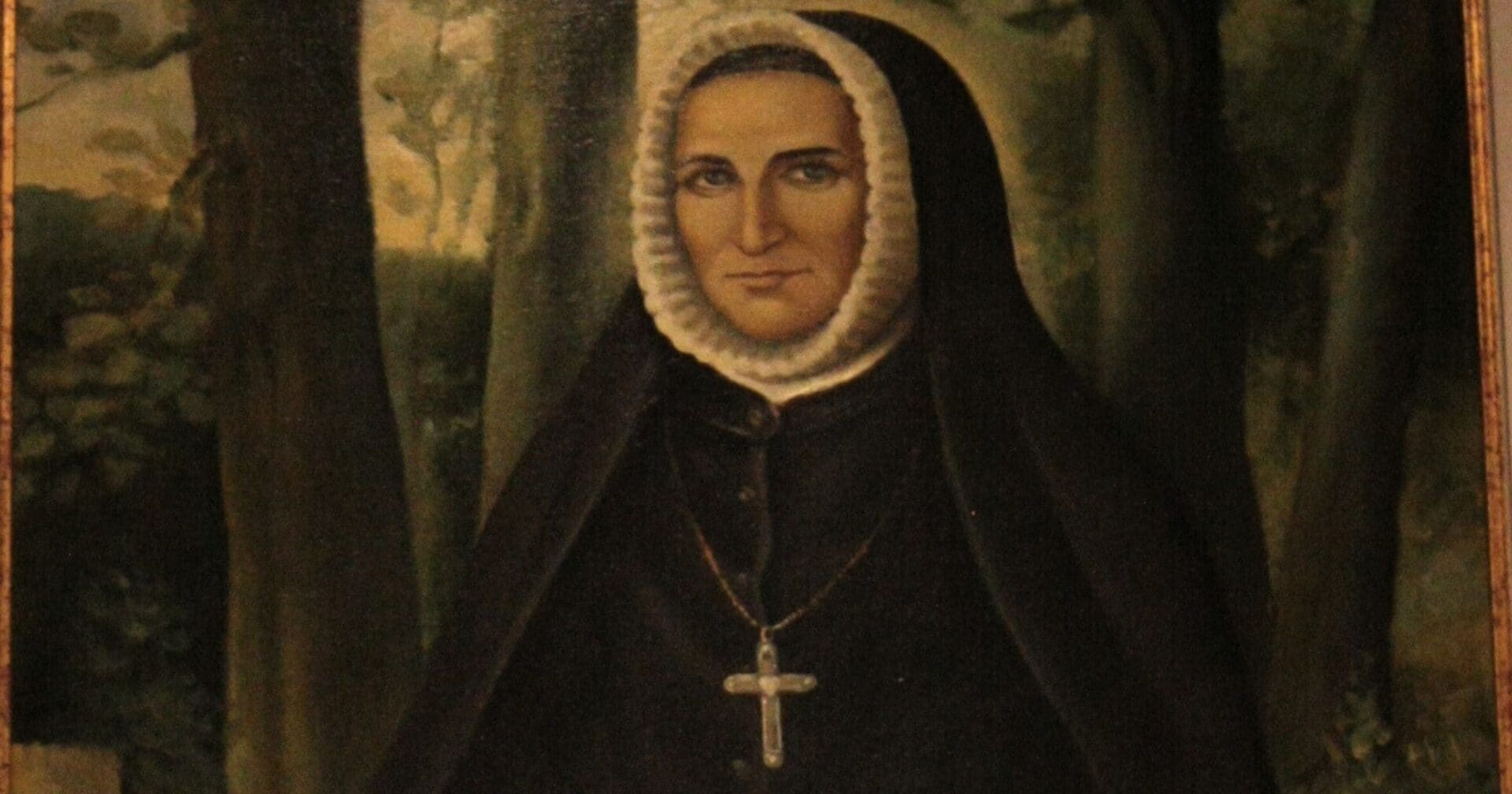Saint Rose Philippine Duchesne was born on August 29, 1769, in Grenoble, France. She was baptized in the Church of St. Louis and given the name Philip, after the apostle, and Rose of Lima, the first saint of the new continent. At the age of 18, she became a novice at the Convent of the Visitation of Ste. Marie d’en Haut, drawn to the contemplative life.
During the turbulent times of the French Revolution, the religious community was disbanded, and Philippine returned to her family home. There, she dedicated herself to caring for prisoners and assisting those in need. After the Concordat of 1801, she attempted, along with some companions, to reestablish the monastery of Ste. Marie, but their efforts were unsuccessful.
In 1804, Philippine learned about a new congregation called the Society of the Sacred Heart of Jesus. She offered herself and her monastery to the Foundress, Mother Madeleine Sophie Barat. Mother Barat visited Ste. Marie in 1804 and accepted Philippine and several companions as novices in the Society.
As Philippine’s desire for the contemplative life deepened, so did her calling to the missions. She had heard this call since her youth. In a letter to Mother Barat, she shared a spiritual experience she had during a night of adoration before the Eucharist on Holy Thursday. She described spending the entire night in the New World, carrying the Blessed Sacrament to various places, and offering all her sacrifices. She eagerly awaited the moment when she could respond, “I go” to Mother Barat’s call. However, it would be another 12 years before her dream would come true.
In 1818, Philippine’s long-awaited mission became a reality. She was sent to respond to the bishop of the Louisiana territory, who was seeking a congregation of educators to help evangelize the Indian and French children in his diocese. In St. Charles, near St. Louis, Missouri, she founded the first house of the Society outside of France. This humble beginning took place in a log cabin, and it came with all the challenges of frontier life – extreme cold, hard labor, and limited funds. Additionally, Philippine faced the difficulty of learning English, and communication with her beloved France was slow and unreliable. Despite these hardships, she remained deeply connected to the Society in France.
Philippine and four other Religious of the Sacred Heart persevered. In 1818, she established the first free school west of the Mississippi. By 1828, she had founded six houses, all dedicated to educating young women in Missouri and Louisiana. While she loved and served these communities with great dedication, her heart continued to yearn for the opportunity to serve the American Indians.
At the age of 72, no longer serving as superior, Philippine fulfilled her dream when a school for the Potawatomi was opened at Sugar Creek, Kansas. Despite concerns about her health, the Jesuit head of the mission insisted that she come, believing that her presence and prayers would ensure the mission’s success. The Potawatomi Indians honored her with the name “Quah-kah-ka-num-ad,” which means “Woman-Who-Prays-Always.” After a year with the Potawatomi, Philippine’s health could not withstand the demands of village life. In July 1842, she returned to St. Charles, Missouri, though her heart never lost its desire for the missions, particularly the Rocky Mountain missions.
Saint Rose Philippine Duchesne passed away at St. Charles, Missouri, on November 18, 1852, at the age of 83.
Photo credit: Tylwyth Eldar via Wikimedia




















Saint Rose Philippine Duchesne, pray for us!
Saint Rose Philippine Duchesne, pray fr us.
Good Saint pray for us.
When we are asked to be bold and courageous,
You are our inspiration
When our imaginations dream and see beyond the limits of our sight,
You are our hope
When we fail to meet a challenge and need to accept our limitations,
You are our model
When we pray with the desire for deep union with God,
You are our Saint
And with your blessing, to the greater glory of God, we seek to be loving people who live and serve others with your same purpose, vision, and quiet humility.
Amen.
Saint Rose Phillipine pray for us amen